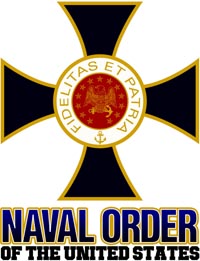News & Tall Tales. 1800s.

The World's Fleet
Boston Daily Globe, Boston, Massachusetts, U.S.A.WORLD'S FLEET
Numbers 28,180 Steamers and Sail Craft -
United States Has 3010 Vessels of 2,465,387 Tons.
NEW YORK, July 27-The Sun this morning prints the following from London under data July 26:
Lloyds' register of shipping gives the entire fleet of the world as 28,180 steamers and sailing vessels, with a total tonnage of 27,673,628, of which 39 percent are British.
The Americans were next with 3010 vessels with a total tonnage of 2,405,887.
Norway has 2528 vessels, with a tonnage of only 1,604,230.
Germany has 1676 vessels, with a tonnage of 2,453,334, in which are included her particularly large ships.
Sweden has 1408 vessels with a tonnage of 643,527.
Italy has 1150 vessels and France 1182.
No other nationality can boast of 1000 ships.
Japan has 841, Denmark 796 and Spain 701.
The British and Americans together control one-half of the entire merchant ship tonnage afloat.
The Sea Chart
The Illustrated History of Nautical Maps and Navigational Charts

John Blake
The sea chart was one of the key tools by which ships of trade, transport and conquest navigated their course across the oceans. John Blake looks at the history and development of the chart and the related nautical map, in scientific and aesthetic terms, as a means of safe and accurate seaborne navigation. Contains 150 color illustrations including the earliest charts of the Mediterranean made by 13th Century Italian merchant adventurers, as well as 18th Century charts that became strategic naval and commercial requirements and led to Cook's voyages in the Pacific, the search for the Northwest Passage, and races to the Arctic and Antarctic.
Shanghaiing Days
The Thrilling Account of 19th Century Hell-Ships, Bucko Mates and Masters, and Dangerous Ports-Of-Call from San Francisco 
Richard H. Dillon
In the last quarter of the 19th Century, American Merchant Marine went into a decline, and sailors were forced to serve under conditions that were little better than serfdom. Seamen were exploited in wholesale fashion, disfranchised of almost all their civil and human rights, and brutally punished forminor offenses. Successful skippers turned into slave drivers, cracking down on the sailors, sometimes even murdering their "hands." Though captains were legally prohibited from flogging their crews, they did not hesitate to wield belaying pins, marlin spikes, or bare fists. The seamen's lot was so horrible that entire crews jumped ship when in port. New crews were kidnaped, crimped, or shanghaied from the unsuspecting populace of the ports. These "impressed" or "hobo" crews were still further conspired against. They often had their wages stolen from them; they were poorly fed and clothed. Their lives became "hell afloat and purgatory ashore." Our "first and finest employ" in colonial days was turned into a disreputable profession-one that was classed with criminals and prostitutes.
Atlantic:
Great Sea Battles, Heroic Discoveries, Titanic Storms, and a Vast Ocean of a Million Stories
Simon Winchester
"Variably genial, cautionary, lyrical, admonitory, terrifying, horrifying and inspiring. A lifetime of thought, travel, reading, imagination and memory inform this affecting account." Kirkus Reviews
Blending history and anecdote, geography and reminiscence, science and exposition, the New York Times bestselling author tells the breathtaking saga of the Atlantic Ocean, setting it against the backdrop of mankind's intellectual evolution. Until a thousand years ago, no humans ventured into the Atlantic or imagined traversing its vast infinity. But once the first daring mariners successfully navigated to far shores whether it was the Vikings, the Irish, the Chinese, Christopher Columbus in the north, or the Portuguese and the Spanish in the south the Atlantic evolved in the world's growing consciousness as an enclosed body of water bounded by the Americas to the West, and by Europe and Africa to the East. Atlantic is a biography of this immense space, of a sea which has defined and determined so much about the lives of the millions who live beside or near its tens of thousands of miles of coast.
The Rebel Raiders
The Astonishing History of the Confederacy's Secret Navy
James T. deKay

During its construction in Liverpool, the ship was known as Number 290. When it was finally unleashed as the CSS Alabama, the Confederate gunship triggered the last great military campaign of the Civil War; yet another infamous example of British political treachery; and the largest retribution settlement ever negotiated by an international tribunal: $15,500,000 in gold paid by Britain to the United States. This riveting true story of the Anglo-Confederate alliance that led to the creation of a Southern navy illuminates the dramatic and crucial global impact of the American Civil War. Like most things in the War between the States, it started over cotton: Lincoln s naval blockade prevented the South from exporting their prize commodity to England. In response, the Confederacy came up with a plan to divert the North s vessels and open the waterways a plan that would mean covertly building a navy in Britain with a cast of clandestine characters.
The History of Seafaring:
Navigating the World's Oceans
 Donald Johnson and Juha Nurminen
Donald Johnson and Juha Nurminen
Royal prestige, intellectual curiosity, and territorial expansion all propelled mankind to undertake perilous voyages across unpredictable oceans. This large and lavishly illustrated volume brings that history to life. From the early Phoenician navigation techniques to the technologies behind today's mega-ships, the greatest advances in shipbuilding are covered, accompanied by hundreds of images, with an in-depth look at navigational instruments (including those used by the Vikings).

The Naval Order of the United States has a history dating from 1890. Membership includes a wide range of individuals, many with highly distinguished career paths.
The San Francisco Commandery meets the first Monday of each month at the San Francisco Italian Athletic Club in San Francisco, California and holds two formal dinners each year.

 Copyright ~ 1998-2018.
Copyright ~ 1998-2018. 